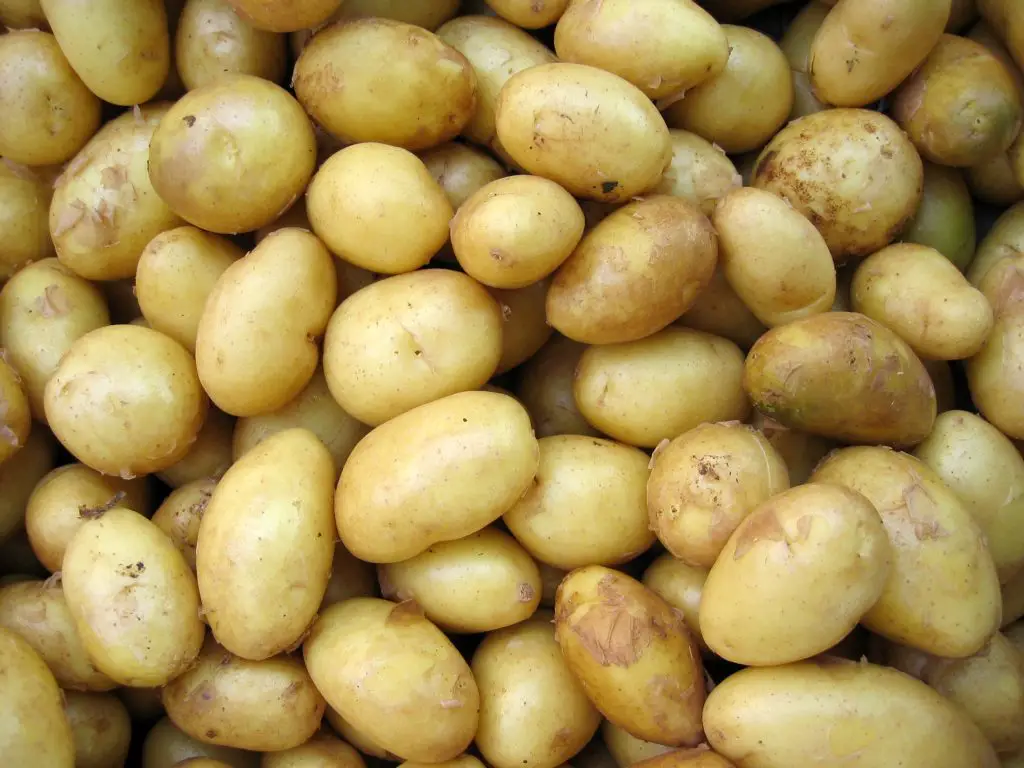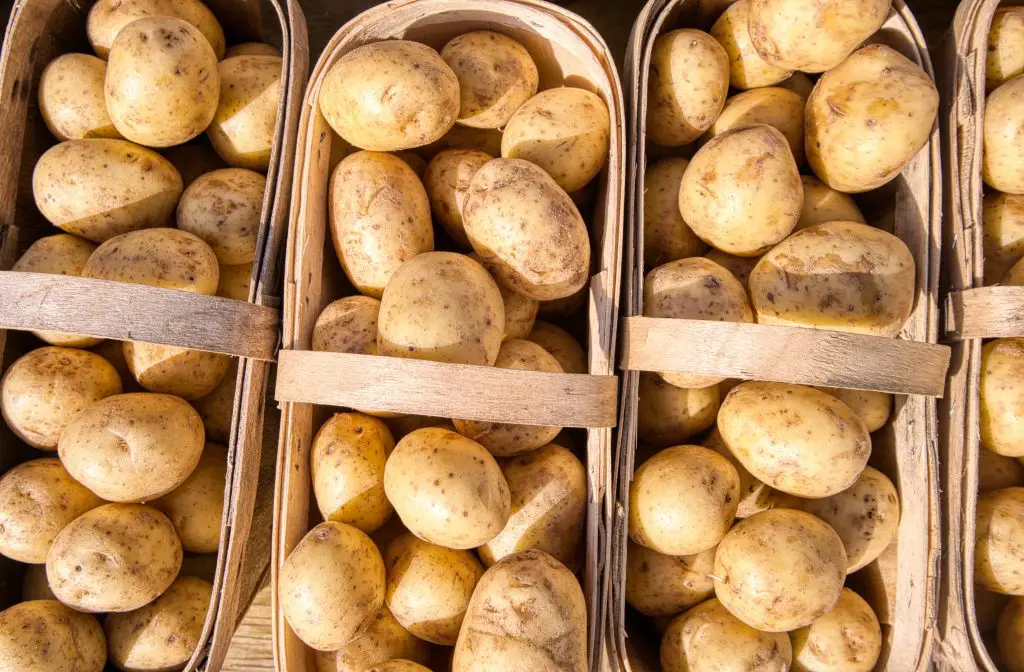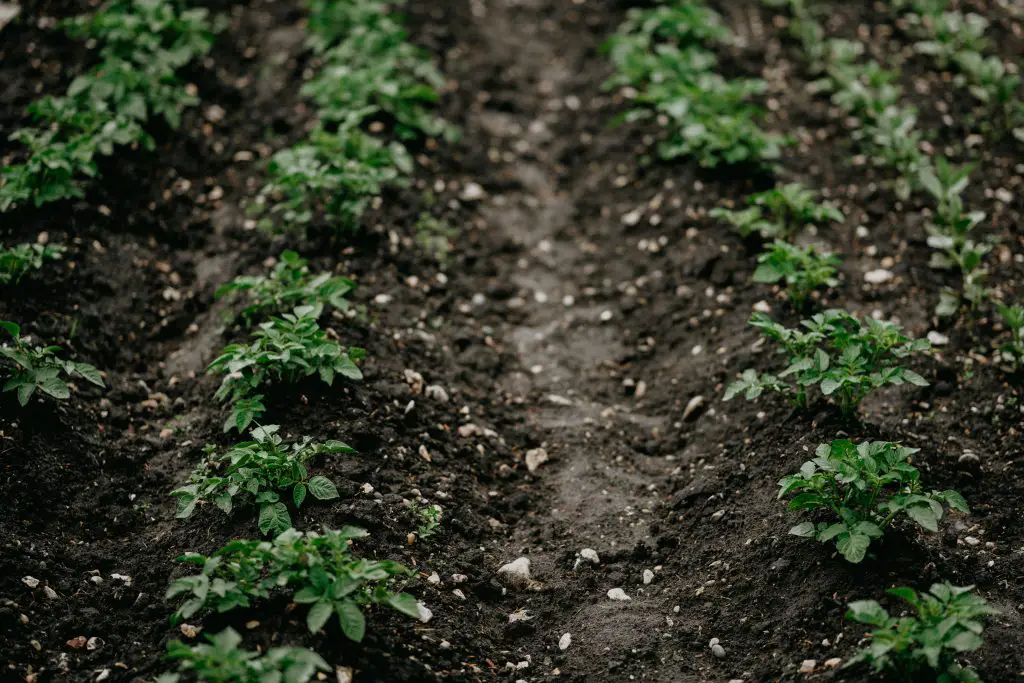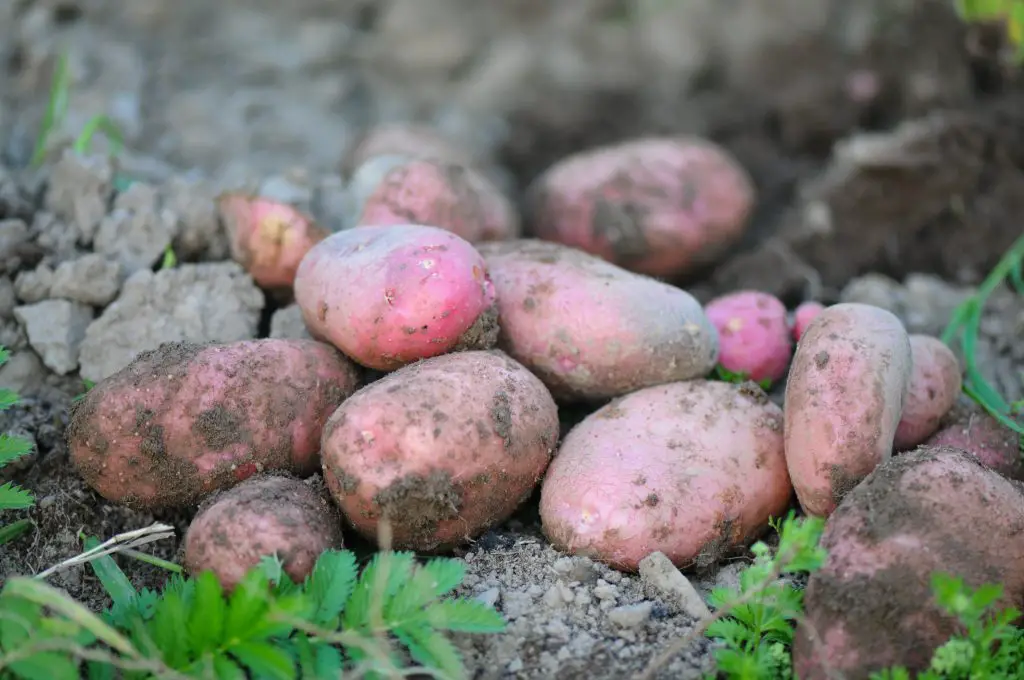Are Potatoes Legumes? Potatoes are one of the most widely eaten vegetables in the world and they are used in almost every cuisine imaginable. They can be roasted, mashed, fried, or even used in things like gnocchi. Given their wide use you may wonder what exactly are they. Are they a legume or something else entirely?
Potatoes are not a legume, which is a plant that absorbs nitrogen from the air and stores it in their roots with the aid of a bacteria. Potato is a member of the Solanaceae family which is a group of plans that include things like tomatoes, eggplant, and peppers. This family is also sometimes referred to as the nightshade vegetables because the family also includes the deadly nightshade.
Those plants that are considered legumes, which are also sometimes referred to as pulses, include things like beans, peas, and lentils. Due to their ability to store nitrogen in their roots they are commonly used as green manure and form an integral part of a crop rotation system.
For those people that are not gardeners green manure is basically a crop that a gardener will grow between other crops in order to increase the nitrogen content of the soil which will help subsequent crops grow. The reason that it is referred to as a green manure is because it is green and it also does similar things to the soil that would be achieved by adding animal manure to it.
To apply green manure all you do is scatter the seed wait for it to grow and then dig the plant back into the soil ready for planting.

About Potatoes
Potatoes have become one of the key dietary staples around the world since it was introduced to Europe in the 1500s. Despite the association of potatoes with Ireland, they did not actually originate there. They come from a small area near the border of Peru and Bolivia and were domesticated somewhere between 5000 and 8000 years ago by the indigenous tribes of South America.
The potatoes were brought back to Europe by the Spanish where they began to spread around Europe. The rate of spread was extremely quick because the potato produces more calories per acre than any other vegetable they are also extremely easy to grow and could be stored for many months in the winter.
In addition to that they are also one a few foods that you can live on almost exclusively. In places like Ireland for example many people had diets that consisted of over 90% potatoes at the height of their popularity.
These characteristics resulted in the potato actually affecting population patterns across Europe resulting in a significant increase in the number of people that could be supported from the land. This increase was most significant in Ireland where the population reached over 8 million people in the mid-1850s. To put this in perspective this population level has not been reached in Ireland since.
However when the disease blight, a fungal disease that causes the tubers to rot struck in the mid-1850s it meant that Ireland went into immediate famine. This resulted in over a million people immigrating to the United States, UK, and Australia.

Can You Grow Potatoes At Home?
As mentioned above potatoes are extremely easy to grow and are highly recommended for even the most inexperienced gardener. These plants produce huge volumes of food and require very little maintenance and effort.
All that is required is to place potato tubers into the ground around 2 to 4 weeks prior to the last frost. Each tuber typically will produce 4lbs (2kg) of potatoes so it is quite easy to produce large volumes of potatoes.
Can You Plant Potatoes From The Grocery Store?
Potatoes from the grocery store can be planted in the ground and they will grow. However, it is recommended that you purchase certified seed potatoes because it reduces the chance of disease. to read more about this click here.

How To Grow Potatoes
Potatoes like all members of the solanaceae family are frost-sensitive plants that need to be grown in frost-free periods of the year. To start the plants off you can chitted the potatoes.
Chitting is the process in which the seed potato is exposed to light for a couple of weeks. This results in the plant producing shoots before it goes into the ground. Many gardeners put the potatoes into egg cartons and leave them in a cool place to sprout.
This process will accelerate an early harvest but is not absolutely essential to produce a decent crop. To read more about this click here.
The seed potatoes can be planted in the garden or in grow bags, however planting them in the garden will produce a much higher yield. To plant them in the garden dig a trench that is approximately 1 ft deep and place the seed potatoes along the base of the trench approximately 1 ft apart.
Cover the potatoes over with soil and leave them to grow. After a few weeks you will begin to see sprouts appearing from the ground. Once the sprouts reach a height of approximately 1 ft it is advisable to earth up the potatoes. This means mounding soil up around the new growth so that only a small amount of the top growth is poking out of the top of the mound.
This is done for two reasons, the first is that potatoes when exposed to light will turn green and become poisonous so earthing up the potatoes prevents exposure to light. The second benefit of doing this is that it increases the yield are the potatoes per plant because new tubers are formed from the stems that have been buried.

The plant will continue to grow throughout the season until it flowers and then the top growth eventually dies back. The potatoes are generally large enough around 4 weeks after the plant has flowered and all tubers can be removed from the ground when the plant dies back.
Storing Potatoes
In most cases, you will find that you have more potatoes than you can eat in the short term which means that you need to store them. They are best stored in a cardboard box in a cool dark place such as a basement or cellar. In these circumstances potatoes can be stored for 6 to 9 months successfully which usually means that you’ll be able to eat every potato that you produce from your garden. This makes potatoes one of the best plants to grow in your garden
I hope you found this article useful. If you have any additional questions or comments please leave them in the section below.
Relevant Articles
Does Earthing Up Potatoes Improve Yield? Is It Worth Doing?
Can You Compost Potatoes? Or Will They Start Growing?
How Late Can You Plant Potatoes? (And How To Maximize The Yield)
What Are The Best Potatoes To Grow In Bags?
